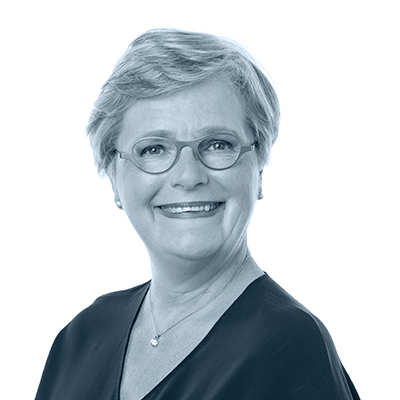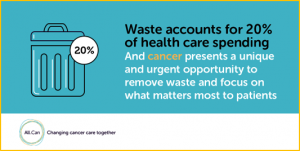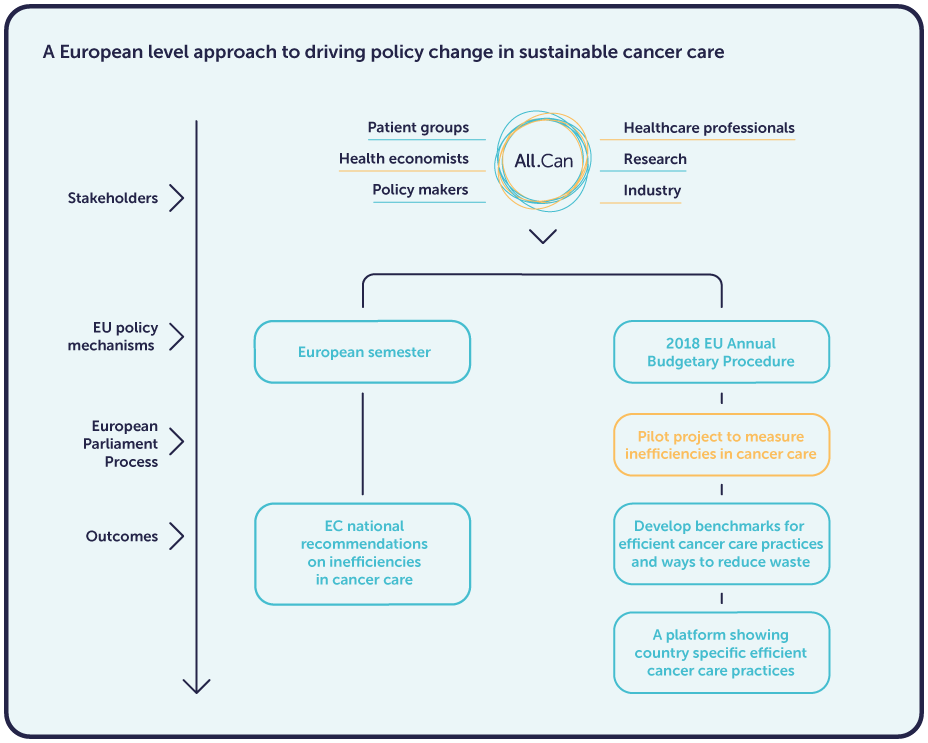

Guest blog by Lieve Wierinck MEP
It’s no secret that budget constraints are affecting all healthcare systems. Coupled with an ageing population, it’s clear that the status quo is unsustainable – and that we need to find ways of making better use of the resources we have. This is not just a question of costs – it’s a question of human lives. As a cancer survivor, I know first-hand the importance of making sure care is centred on improving outcomes – survival, but also quality of life – for patients as well as their families. We all speak about the need to adopt ‘patient-focused’ approaches – yet in reality, lack of data that reflects what matters most to patients, and often short-term fixes that may decrease costs but at the expense of quality of care, have meant that there is a long way to go yet.
This notion – that we need to focus on patient outcomes, and make sure that the resources we have deliver the best care possible to cancer patients across Europe – is central to the work of All.Can, of which I am a member. In our report launched at the European Parliament last December, I made the point that we all – politicians, patients, health professionals, regulators – need to ‘re-think’ how we allocate resources in cancer, and make sure we lead concrete actions to improve the efficiency of cancer care. And there is a clear opportunity to do so, as no less than 20% of healthcare spending in Europe is currently estimated to be wasted on ineffective interventions!

The All.Can policy report contains a call to action focused on four key areas for reducing inefficiencies and ultimately protecting the financial sustainability of high-quality care for patients across Europe. Focusing political will and creating greater accountability comprise two of those key recommendations. And it’s in these areas that the European Semester has a significant role to play in putting efficiency higher up the agenda.
The European Semester was introduced in 2010, it provides a framework for the coordination of economic policies between the countries of the European Union. The European Commission reviews EU Member States’ economic and budget plans, and importantly, monitors progress at specific times throughout the year. The Commission proposes recommendations that are discussed and – usually – approved by the Member States. This allows action to be taken – national governments are encouraged to incorporate the recommendations into their reform plans and national budgets for the following year.
A few weeks ago, the European Parliament adopted a resolution on this European Semester. In this text, my proposal to ensure that cost-effective spending and measures of health care efficiency be included as part of the European Semester was incorporated.[note]The exact text of the resolution reads:
29. Notes that the Member States currently spend 5-11 % of their respective GDPs on healthcare, a share that is expected to increase considerably in the coming decades as a result of demographic changes; urges the Commission to focus efforts on cost-effective spending on high-quality healthcare, and on universal access thereto, through cooperation and sharing of best practices at EU level and by addressing the sustainability of quality healthcare systems in country-specific recommendations;[/note]

It is a significant step forward that this resolution has been passed – and I hope it marks the beginning of holding Member States to account for the outcomes they achieve for their populations through health care spending. Getting efficiency on the agenda is an important first step in helping to focus Member States on the need to improve the efficiency of care – one that member states can be held accountable by the European Union’s economic governance.
I am a firm believer that the work of All.Can may contribute to creating a sustainability agenda for cancer care across Europe. I will be sharing the text with the Members of the European Parliament Against Cancer group, and hope to think collaboratively about how we may further advance this important agenda at the European level.